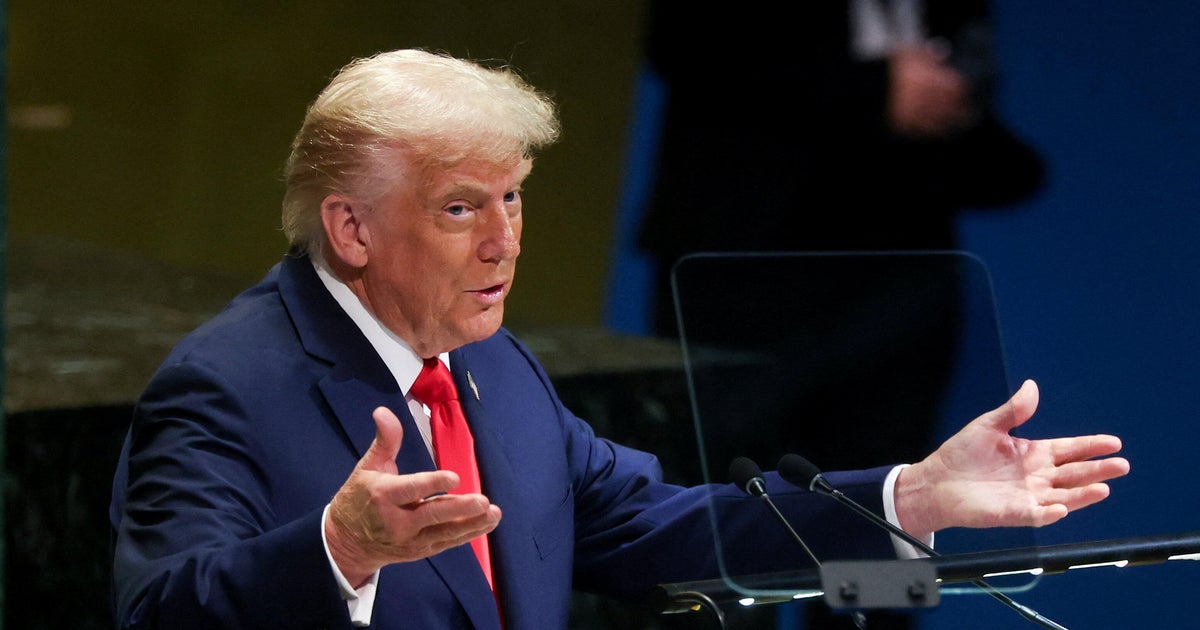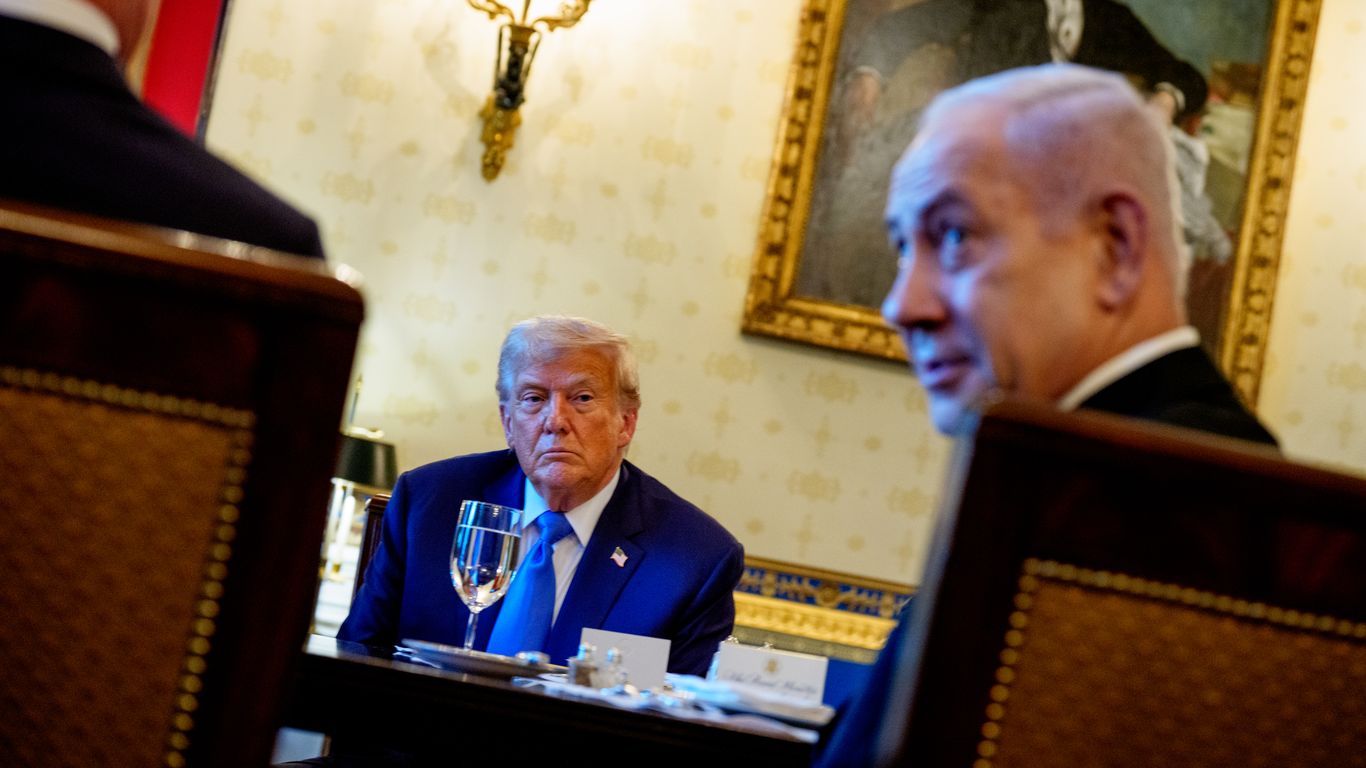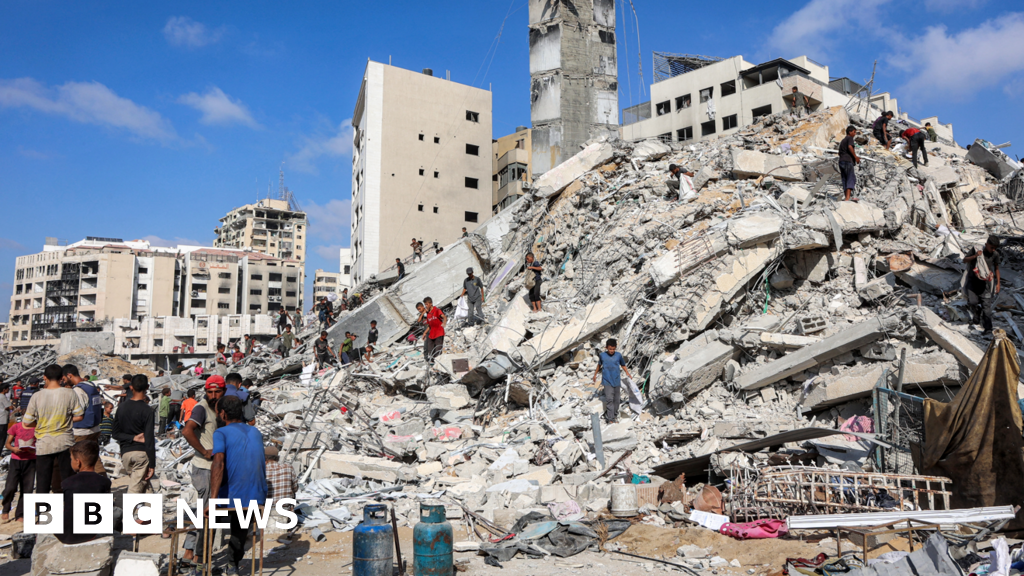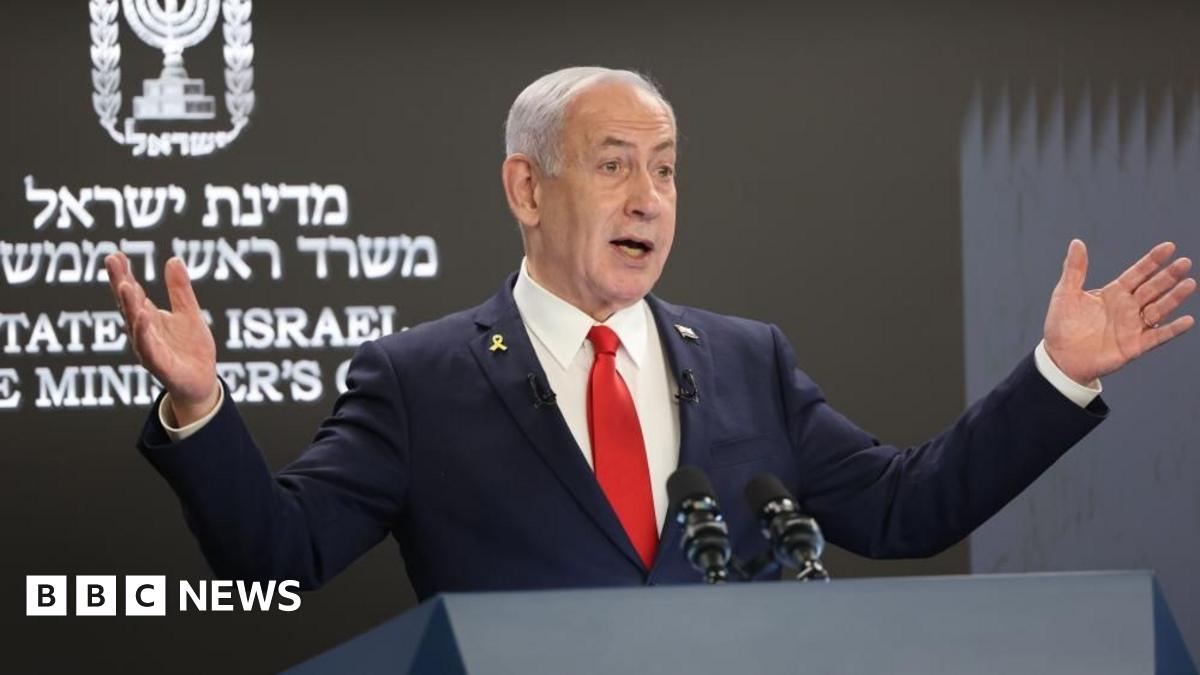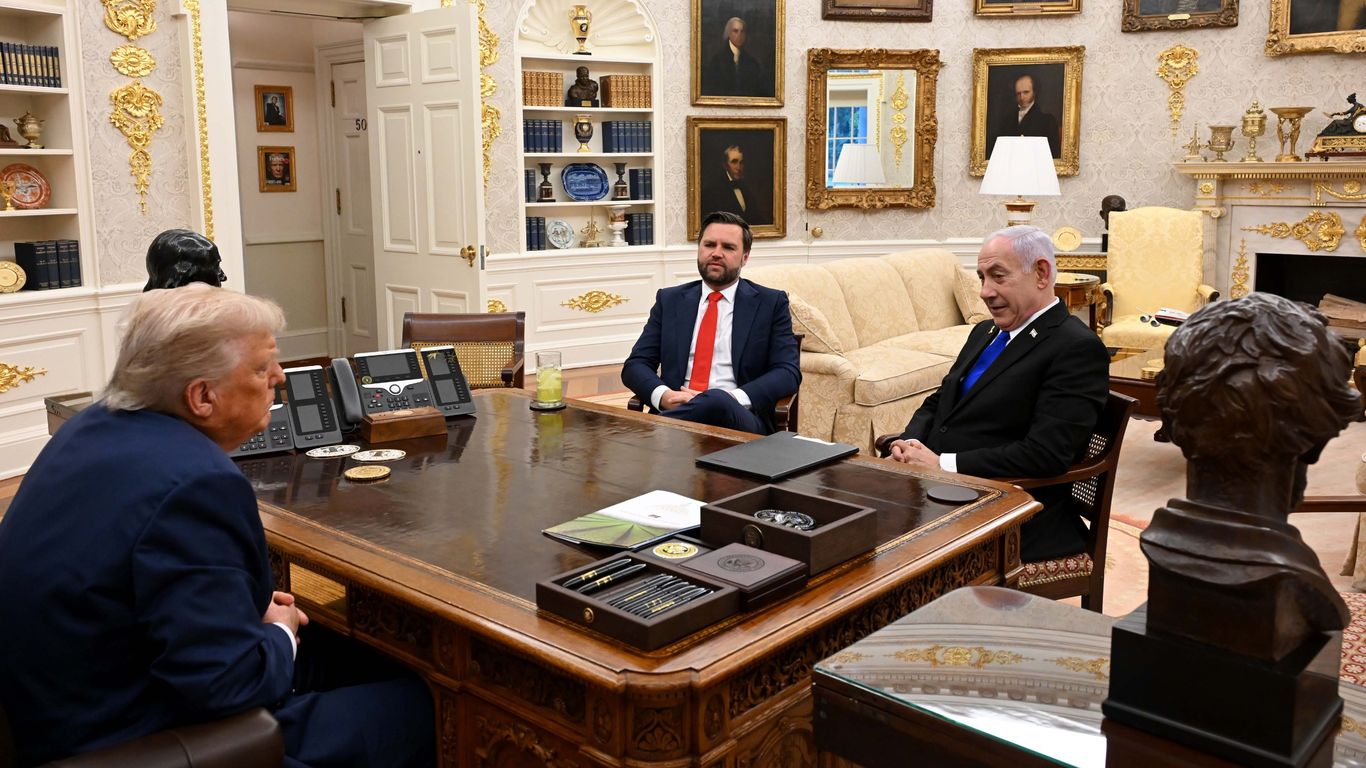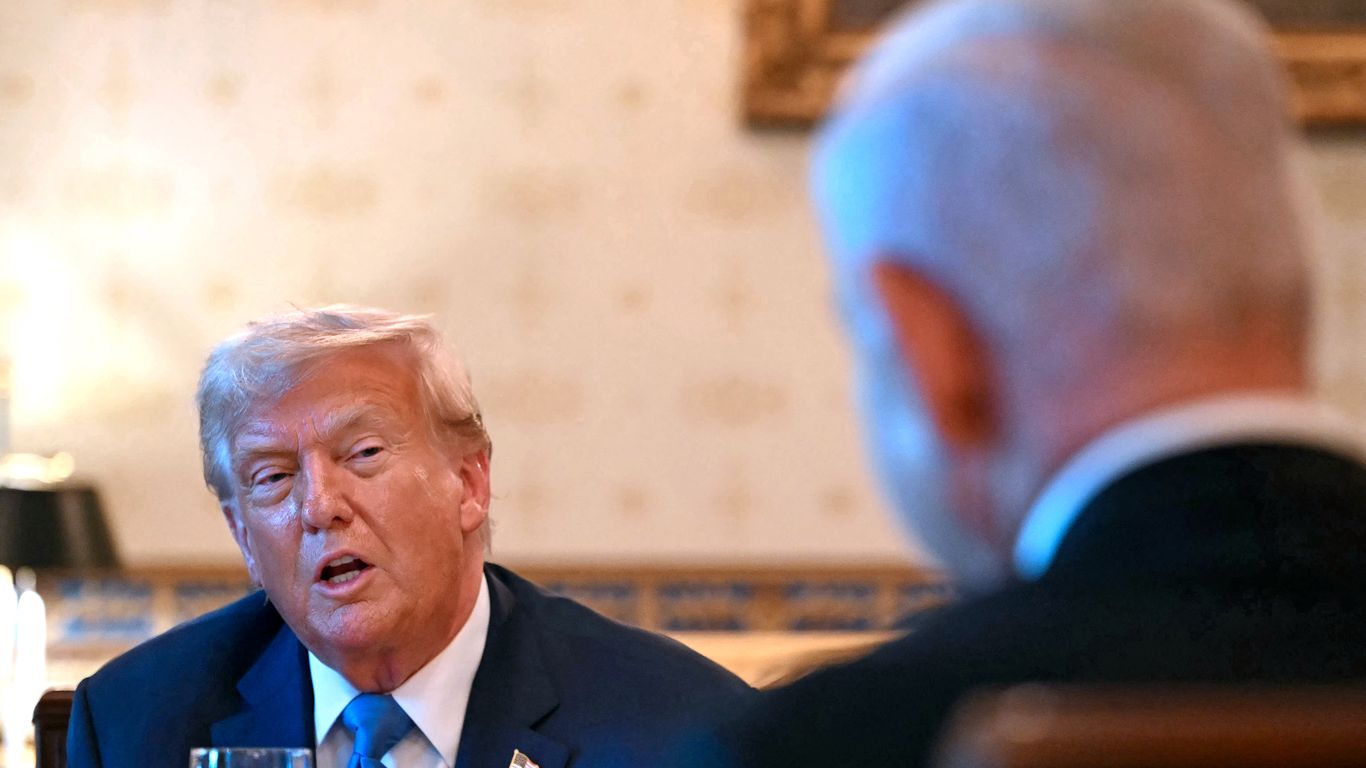Trump Promises to Prevent Israel from Annexing West Bank

Introduction
President Trump has promised Arab and Muslim leaders that he will not allow Israel to annex the West Bank. This pledge was made in a closed-door meeting at the United Nations, where tensions between Israel and Palestine have been high. This promise has sparked hope for a potential resolution to the ongoing conflict in the region.
Details of the Meeting
The meeting took place during the United Nations General Assembly, where President Trump met with leaders from various Arab and Muslim countries. During the meeting, Trump reaffirmed his commitment to finding a peaceful solution to the Israeli-Palestinian conflict. He also stated that he will not allow Israel to take unilateral actions that could jeopardize the possibility of a two-state solution.
Possible Implications
This promise from Trump comes at a critical time, as Israel's Prime Minister Benjamin Netanyahu has pledged to annex the West Bank if he is re-elected. This could further escalate tensions in the region and potentially upend any progress towards a peaceful resolution. However, with Trump's promise, there is hope that diplomatic efforts will continue to find a mutually agreeable solution for both sides.
About the People Mentioned
Donald Trump
Donald John Trump, born June 14, 1946, in Queens, New York, is an American businessman, media personality, and politician. He graduated from the University of Pennsylvania’s Wharton School in 1968 with a degree in economics. In 1971, he took over his family’s real estate business, renaming it the Trump Organization, through which he expanded into building and managing skyscrapers, hotels, casinos, and golf courses. Trump gained widespread fame as the host of the reality TV show *The Apprentice* from 2004 to 2015, which helped establish his public persona as a successful entrepreneur. Trump entered politics as a Republican and was elected the 45th president of the United States, serving from 2017 to 2021. His presidency was marked by significant policy actions including tax cuts, deregulation, the appointment of three Supreme Court justices, renegotiation of trade agreements (notably replacing NAFTA with the USMCA), and a focus on immigration control including border wall expansion. He withdrew the U.S. from international agreements such as the Paris Climate Accord and the Iran nuclear deal, and engaged in a trade war with China. His administration’s response to the COVID-19 pandemic was criticized for downplaying the virus’s severity. Trump was impeached twice by the House of Representatives—first in 2019 for abuse of power and obstruction, and again in 2021 for incitement of insurrection—but was acquitted by the Senate both times. After losing the 2020 election to Joe Biden, Trump challenged the results, culminating in the January 6, 2021, Capitol riot. He remains a central figure in American politics, having won the 2024 presidential election and returned as the 47th president in 2025, continuing to promote policies aimed at economic growth, border security, and military strength[1][2][3][4].
Benjamin Netanyahu
Benjamin Netanyahu, born on October 21, 1949, in Tel Aviv, Israel, is a prominent Israeli politician and diplomat who has served as Prime Minister of Israel three times (1996–1999, 2009–2021, and from 2022 onwards). He began his career in the Israeli military's special operations and later transitioned into politics in the late 1980s, joining the Likud party[1][2]. Netanyahu first became prime minister in 1996, during which time he signed the Hebron and Wye Accords, advancing peace efforts with the Palestinians. His administration focused on economic reforms such as government privatization, liberalizing currency regulations, and reducing deficits. After losing the 1999 election, he served as foreign minister and finance minister before reclaiming the Likud leadership in 2005[1][3][4]. Returning as prime minister in 2009, Netanyahu formed a national unity government and proposed a demilitarized Palestinian state recognizing Israel as the Jewish state, emphasizing security concerns. His tenure was marked by fluctuating peace negotiations with the Palestinians and contentious policies including settlement expansions. He also maintained a hawkish stance on Iran and supported the Iraq war[1][3][5]. In 2022, Netanyahu made a political comeback as prime minister, leading a coalition that included far-right parties. His leadership during this period has been pivotal amid the 2023–2024 Israel-Hamas conflict, with significant domestic and international implications[2]. Netanyahu is Israel’s longest-serving prime minister and remains a central figure in Israeli politics, known for his strong security policies, economic reforms, and complex role in the Israeli-Palestinian conflict. His career has been marked by both political resilience and controversy, reflecting his enduring influence on Israel’s domestic and foreign affairs[2][3][5].
About the Organizations Mentioned
United Nations
The United Nations (UN) is a pivotal international organization established in 1945, following the devastation of World War II, with the primary goal of maintaining global peace and security, fostering international cooperation, and promoting social progress. The UN Charter, signed by 51 founding member states, including the United States, the United Kingdom, China, and the Soviet Union, laid the foundation for this ambitious endeavor[1][3]. ## History and Structure The UN was born out of the failures of its predecessor, the League of Nations, which failed to prevent World War II. Key planning meetings, such as the Dumbarton Oaks Conference in 1944, defined the UN's structure, which includes the General Assembly, the Security Council, the Economic and Social Council, the Trusteeship Council, the International Court of Justice, and the Secretariat[1][6]. The Security Council, with five permanent members (the United States, China, France, Russia, and the United Kingdom), holds significant influence due to its veto power[2]. ## Key Achievements Over the years, the UN has played a crucial role in conflict resolution, human rights advocacy, and sustainable development. Notable achievements include the establishment of the Universal Declaration of Human Rights in 1948 and the implementation of numerous peacekeeping missions worldwide[3][4]. The UN has also been instrumental in addressing global challenges such as climate change and pandemics through its various programs and agencies. ## Current Status Today, the UN comprises 193 member states, with its most recent addition being South Sudan in 2011[5]. The organization continues to evolve, addressing emerging issues like digital governance and cybersecurity. Despite challenges, the UN remains a cornerstone of international diplomacy and cooperation. ## Notable Aspects The UN's work is not limited to politics; it also impacts business and technology through initiatives that promote sustainable development and digital inclusion. Its role in setting global standards and fostering international cooperation makes it a significant player in shaping the
Arab League
The Arab League, formally known as the League of Arab States, is a regional organization founded on March 22, 1945, in Cairo, Egypt. It was established to promote unity and cooperation among Arab countries, with the original members being Egypt, Iraq, Lebanon, Syria, Transjordan (now Jordan), Saudi Arabia, and Yemen[3][5]. The League's primary goals include strengthening relations, safeguarding independence, and coordinating economic and military affairs among its members[5]. **History and Development** - The League was formed in response to post-war colonial divisions and opposition to the creation of a Jewish state in Palestine[4]. - Over the years, it has expanded to include 22 member states across the Middle East and parts of Africa[5]. - Notable events include the suspension of Egypt in 1979 due to its peace treaty with Israel, and the suspension of Libya and Syria in recent years due to internal conflicts[2][1]. **Key Achievements and Challenges** - Despite its loose structure and lack of enforcement mechanisms, the Arab League has played significant roles in regional diplomacy, such as the 2002 Arab Peace Initiative[4]. - It has faced challenges due to internal divisions and differing national interests, which often hinder collective action[4]. - The League has supported economic integration by eliminating tariffs on goods of Arab origin among member states[1]. **Current Status** - Today, the Arab League continues to navigate complex regional issues, including the Palestinian cause and the rise of sectarian tensions[4]. - It maintains observer status at the United Nations and supports cultural dialogue and cooperation among nations[5]. **Notable Aspects** - The League's structure includes a Council where each member has one vote, and decisions are binding only on those states that vote for them[5]. - Despite its limitations, the Arab League remains a significant platform for Arab states to address common challenges and promote regional cooperation in both economic and political spheres[4].
Muslim World League
The **Muslim World League (MWL)** is an international non-governmental Islamic organization founded in 1962, headquartered in Mecca, Saudi Arabia. It was established following a resolution at the World Muslim Congress with the goal of propagating Islam and improving global understanding of the religion[1][5][7]. The MWL aims to present Islam in its true and tolerant form, promote moderation, and foster peace, justice, and coexistence worldwide[2][7]. It actively combats extremism, violence, and exclusion through its outreach and educational programs[2]. The organization operates globally with offices in many countries and is funded by the Saudi government. Its governance includes a Constituent Council of 60 members from leading Islamic organizations and a Secretary-General managing day-to-day affairs[1][5]. The MWL organizes symposia, educational events, and conferences, especially during the Hajj pilgrimage, bringing together prominent Islamic scholars to discuss religious and social issues[1][3]. It also promotes Arabic language instruction, Islamic media, and the dissemination of classical and modern Islamic texts[1][4][6]. A significant component of the MWL’s work is humanitarian aid, delivered through its subsidiary, the International Islamic Relief Organization. It provides relief to Muslims affected by conflicts and natural disasters[1][7]. MWL's Islamic Fiqh Council has issued important fatwas, such as permitting Zakat (charitable giving) to refugees and internally displaced persons, supporting humanitarian efforts in accordance with Islamic law[2][7]. Technologically, the MWL leverages mass media and digital platforms to propagate Islamic teachings and culture, enabling effective global outreach[1][6]. This combination of religious scholarship, humanitarian aid, and media presence positions the MWL as a key player in international Islamic discourse, bridging religious traditions with modern communication and humanitarian needs. The League continues to evolve its priorities to reflect contemporary challenges facing the Muslim world, promoting responsible leadership and dialogue[5][7].
